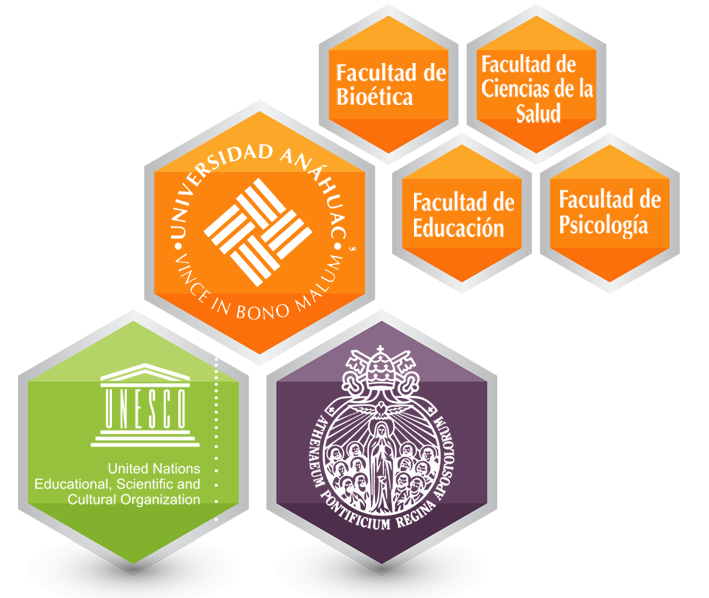In an increasingly globalized and fragmented world, the complex problems facing humanity require solutions that transcend the boundaries of traditional disciplines.
In this context, interdisciplinary projects emerge as a necessary response to address social, cultural, economic, and scientific challenges in a comprehensive manner.
Anáhuac University Mexico, through the Anáhuac Center for Strategic Development in Bioethics (CADEBI), has consolidated a space to foster collaboration among diverse areas of knowledge, promoting the development of projects that integrate health sciences, bioethics, psychology, education, and other key disciplines for understanding and addressing current phenomena.
Why an Interdisciplinary Project?
The study of complex problems facing today's human reality requires the collaboration of diverse experts in different disciplines, who interact in novel and comprehensive ways.
Projects
The projects that make up this line of interdisciplinary research include initiatives such as:
AClinical Bioethics and Neuroethics Anáhuac (BINCA), which seeks to promote critical reflection and joint research among students, academics, and researchers in the field of bioethics.
BBioethics for All, which aims to disseminate the principles of person-centered bioethics through media accessible to society at large.
CInterdisciplinarity and Infertility, which promotes comprehensive care practices for the Mexican population regarding the diagnosis and treatment of infertility.
DQuerida Amazonia, a cross-cutting project that addresses the complexity of current social and environmental problems from a global and interdisciplinary perspective.
Through these projects, we seek not only to generate new and more in-depth knowledge, but also to contribute to the creation of comprehensive solutions that transform our societies toward a more just and equitable future.
Advantages of Interdisciplinarity
Interdisciplinarity is, therefore, a new way of articulating and integrating knowledge to address specific and concrete aspects of the phenomenon under study.

